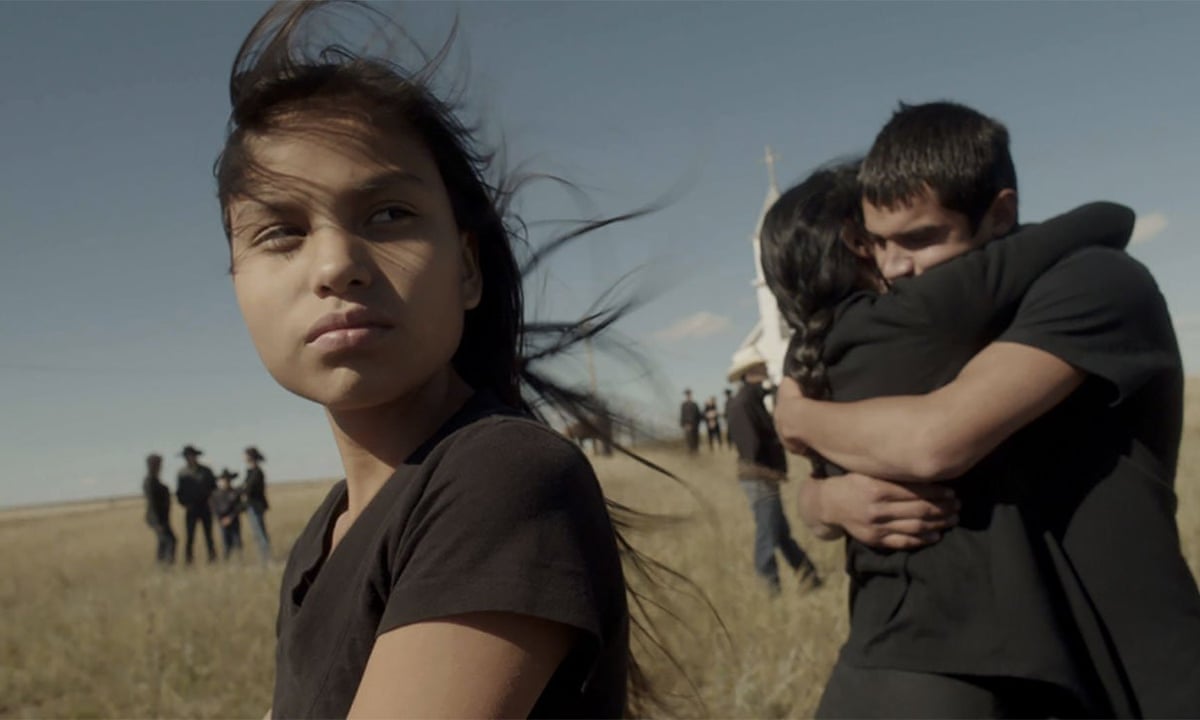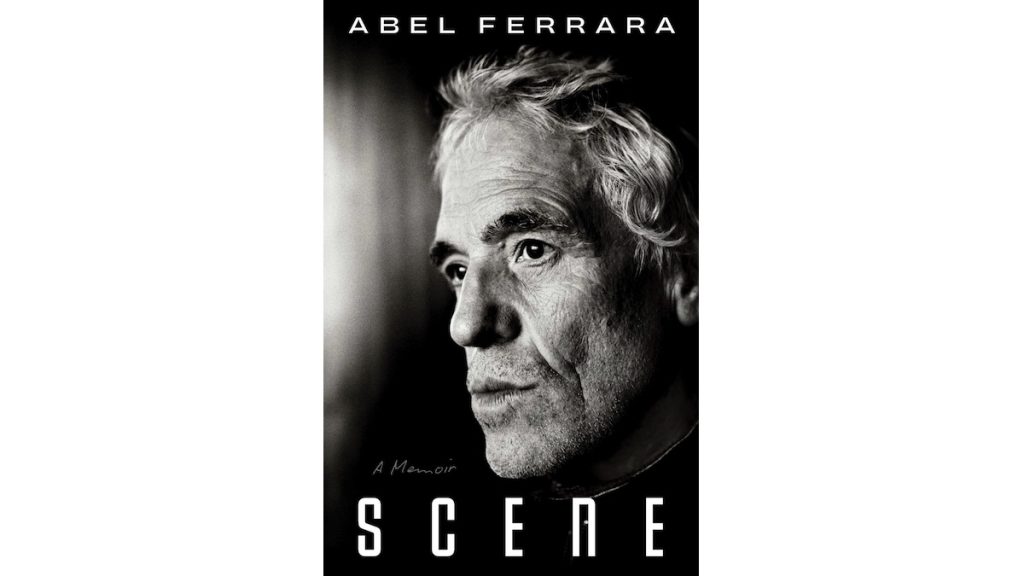Ever since it was announced that Chloé Zhao was joining the MCU as director of Eternals, I’ve been puzzling at why. One explanation, that it was for the paycheck, is suggested in a brief scene in Zhao’s Nomadland (2020), in which Fern (Frances McDormand), who is in town as an itinerant beet harvest laborer, walks by a marquee advertising The Avengers, an Easter egg that seems to link MCU filmmaking with economic necessity. But I have too much respect for Zhao as a filmmaker to accept that cynical explanation. So, instead, I’ve sought others, thinking of the ways Zhao’s interests and themes—i.e., marginalized people, American mythos, the intimate within the epic, survival against all odds—might intersect with Marvel’s, in ways additive to both the filmmaker’s oeuvre and the franchise.
What if, for instance, we refigure Zhao’s previous three feature films as superhero origin stories, its protagonists forged in adversity. (Think Christopher Nolan’s Batman Begins [2005]). In this thought experiment, The Rider (2017)’s Brady Jandreau becomes ‘Native Cowboy’ (superpower: horse-whispering), with his rodeo accident akin to Peter Parker’s spider bite. And an imaginary stinger in Nomadland features Fern’s white van lifting off that endless thread of American highway into space, with a course set for Linda May’s “Earthship,” whose ecological planet-saving function is hyperbolized to MCU proportions.
Though it’s been neglected in film critics’ Eternals-provoked reconsideration of Zhao’s work, the filmmaker’s debut feature, Songs My Brother Taught Me (2015) proves especially amenable to this thought experiment, as well as to an understanding of Zhao’s signature semi-improvisational method (abandoned for her MCU entry, obviously) and lyrical style (barely evident in the same). If Eternals is Zhao diluted to 5%, Songs was Zhao pure strain, unrefined.
As a graduate student in NYU’s Tisch School’s Film Program, and admirer of Terrence Malick, Zhao set out to make a film on the Pine Ridge Reservation in South Dakota. With a paltry budget and no script, Songs My Brother Taught Me took four years, in which Zhao got to know the struggles and communal power of the Oglala Lakota people. She put together a treatment based on the real lives of tribal members who, in turn, she cast. Discovering the story and revising a script as she went, Zhao turned her camera—with another Tisch grad, Joshua James Richards as cinematographer (he also lensed The Rider and Nomadland)—to capture hardship and beauty, in museum-worthy long shots of vast landscapes and intimate close-ups of characters, and the tenderness between them. Not least of all, Zhao capitalized on the Great Plains’ other-worldly glow at dusk and dawn, developing her trademark obsession with the “magic hour.” Due in part to the conditions of the shoot, the film feels authentic and lived-in, its pace unrushed, each scene held to imply weighty signification, lightly touched with a melancholy score. In the pacing, too, you can sense Zhao developing her skills as her own film editor, intuitively rhythmic.

Like The Rider (and so many superhero origin stories), Songs is a coming-of-age story. Its protagonist Johnny Winters (Johnny Reddy) is a Lakota teenager who dreams of escaping the apparent dead-end of “rez life.” He plans to head west to Los Angeles, where his girlfriend Aurelia (Taysha Fuller) will be attending college. Lower stakes than an MCU apocalypse but more real, the question of whether Johnny will leave provides the film’s narrative suspense.
It’s easy to see why he should. “Rez life” is tough, and riddled with generational trauma. Alcoholism is endemic even though it is illegal. Residents find plenty of ways to get it, including from Johnny, who delivers it surreptitiously, in order to fund his escape. In this work, he samples too much of his own product, winding up hungover at school, and tramples on another man’s turf, winding up jumped and beaten. His brother Cody (Justin Reddy) is in jail and a dear friend has killed himself. Johnny’s bull-riding, alcoholic father, who had 25 children with nine women, has burned up in a house fire, the smoldering ruins through which his children rummage. Loving but lost, Johnny’s single mother (Irene Bedard) pays more attention to a rotation of male companions than to her kids. (When she finds religion, Cody in the clink tells her, “Just don’t make God another man that you abandon your children for.”) And Johnny’s sweet 11-year-old sister Jashaun (Jashuan St. John), who loves tribal traditions and longs for a powwow dress, is growing up too fast. She learns how to smoke weed and finds herself at an all-too-adult party when her ride—a kind-hearted ex-convict with artistic aspirations—forgets to stay sober.
Despite all of that, Songs argues that there are reasons for Johnny to stay. Certainly, Zhao’s camera is enchanted by the natural surroundings, as suggested above. The Plains are golden, and the Badlands never looked so good. Though tough, these spaces are beautiful, wild and open, where one can be “as free as the wind that blows behind the rain [and] as honest as the horse between [one’s] knees,” Zhao tells us with gorgeous shots of horseback-riding and with “The Cowboy Prayer” recited by an announcer before a rodeo (albeit with a hint of the irony that would come to structure The Rider). Furthermore, these are the natural spaces that connect Johnny to his identity, family, and tribal history, which is one of survival, and therefore a source of pride. This is a lesson he learns from his sister, rather than from one of his many brothers (per the film’s title).
Indeed, as a superhero origin story (or any other kind), Songs belongs as much to Jashaun as it does to Johnny. Their superpowers are transforming hard, even life-threatening materials into less harmful, even life-affirming ones—not unlike the more literal superpower of Sirse (Gemma Chan) in Eternals. In Songs’ final moments, Johnny explains in voiceover why he decides to stay: Jashaun needs him and he needs her, particularly her strength in cultural pride, leaning into the wind lest they be blown away, as the tribe elders teach. “She sees things I don’t,” he says, and the viewer sees Jashaun dancing gleefully among tribe members in a luminescent red powwow dress, her superhero uniform. The final image is of Johnny grabbing a handful of Badlands stone, ground to dust, and throwing it into the air, watching it become one with the magnificent cosmos.
And just like that, an intersection where Zhao’s universe meets Marvel’s in Eternals: the saving qualities of family/tribe and, relatedly, the proposition that humanity is deeply flawed but inherently redeemable. See, that’s not cynical at all.
“Songs My Brother Taught Me” is now streaming on Hulu, Showtime, Kanopy, and several other streaming services.



